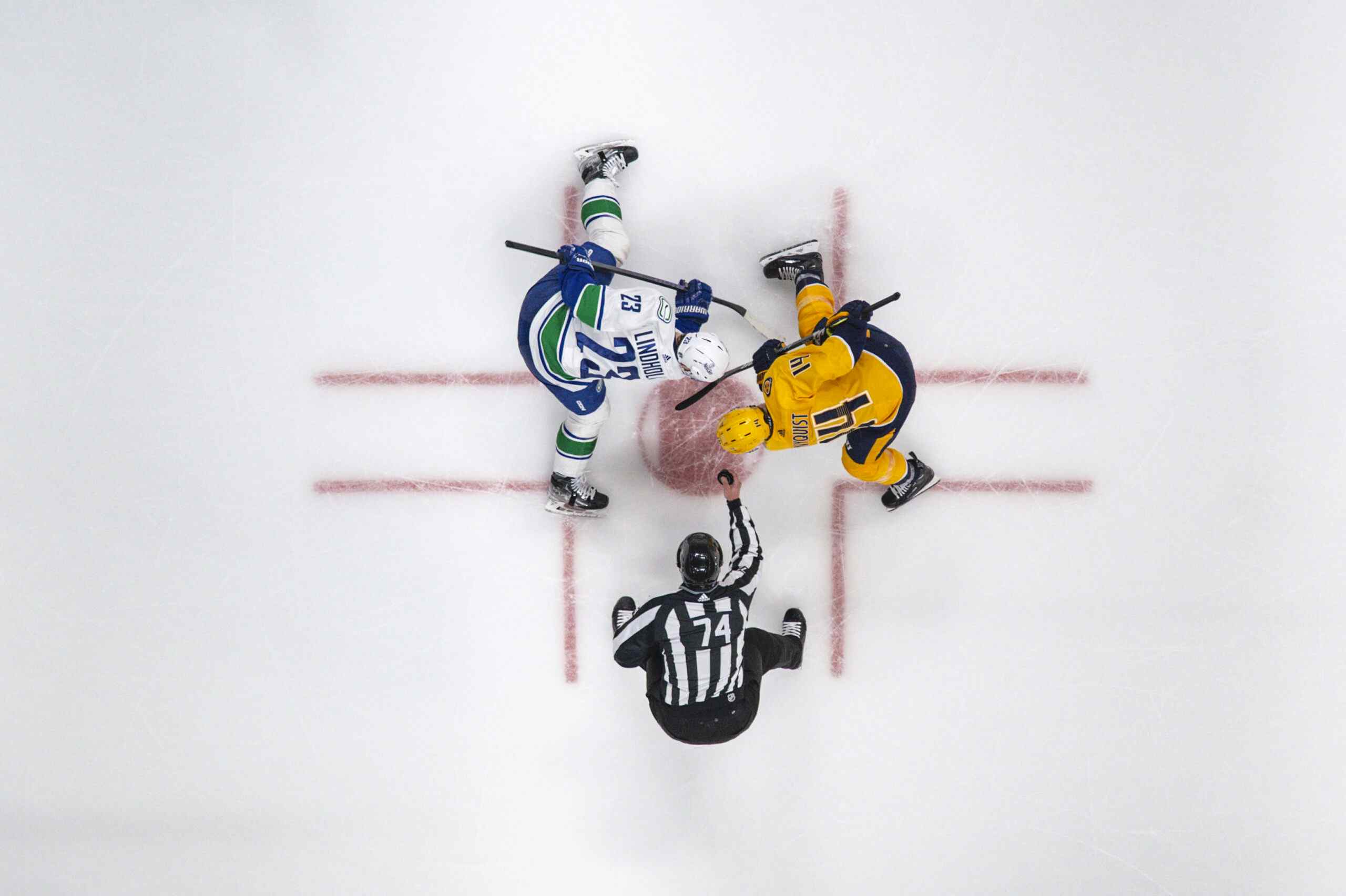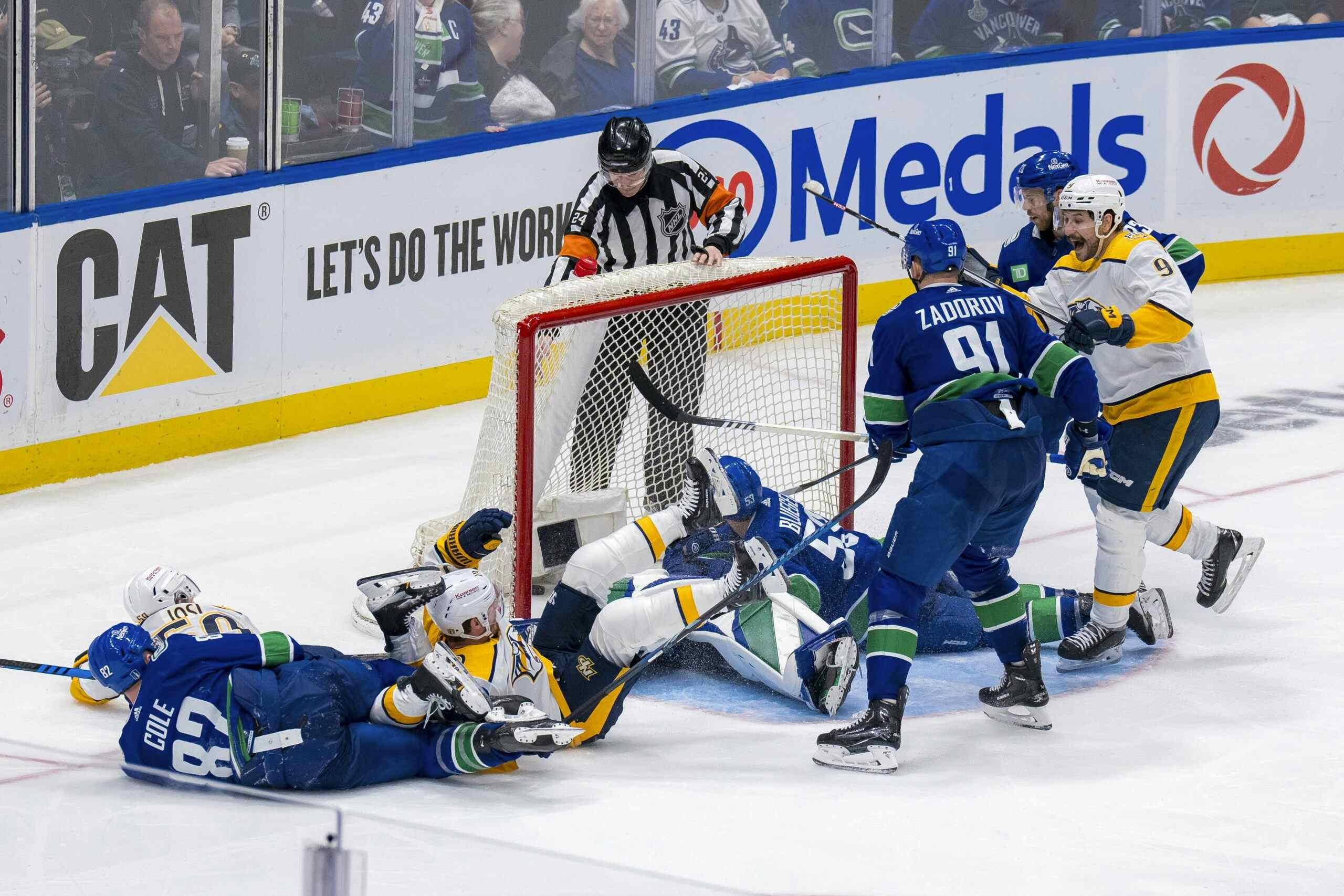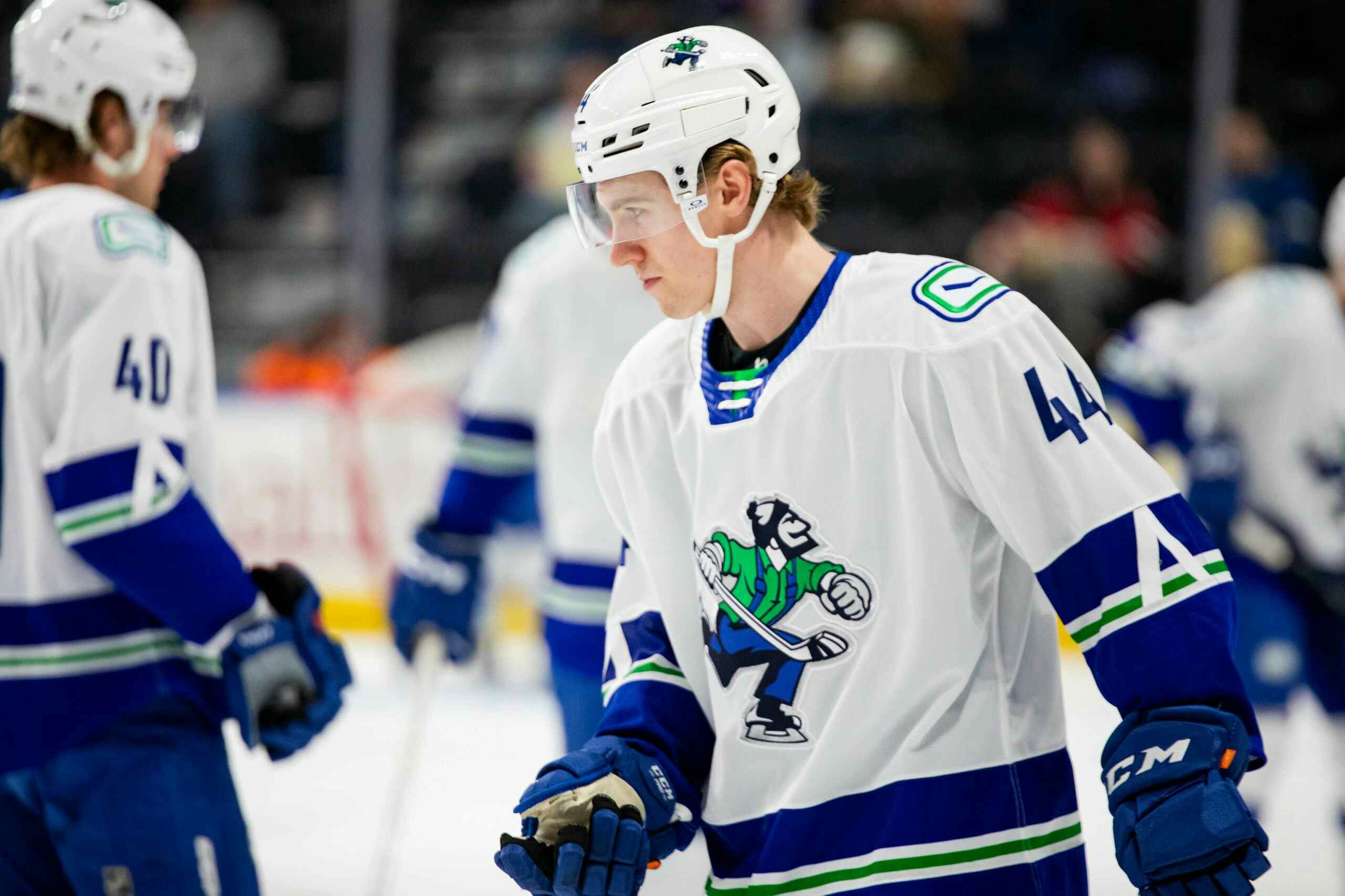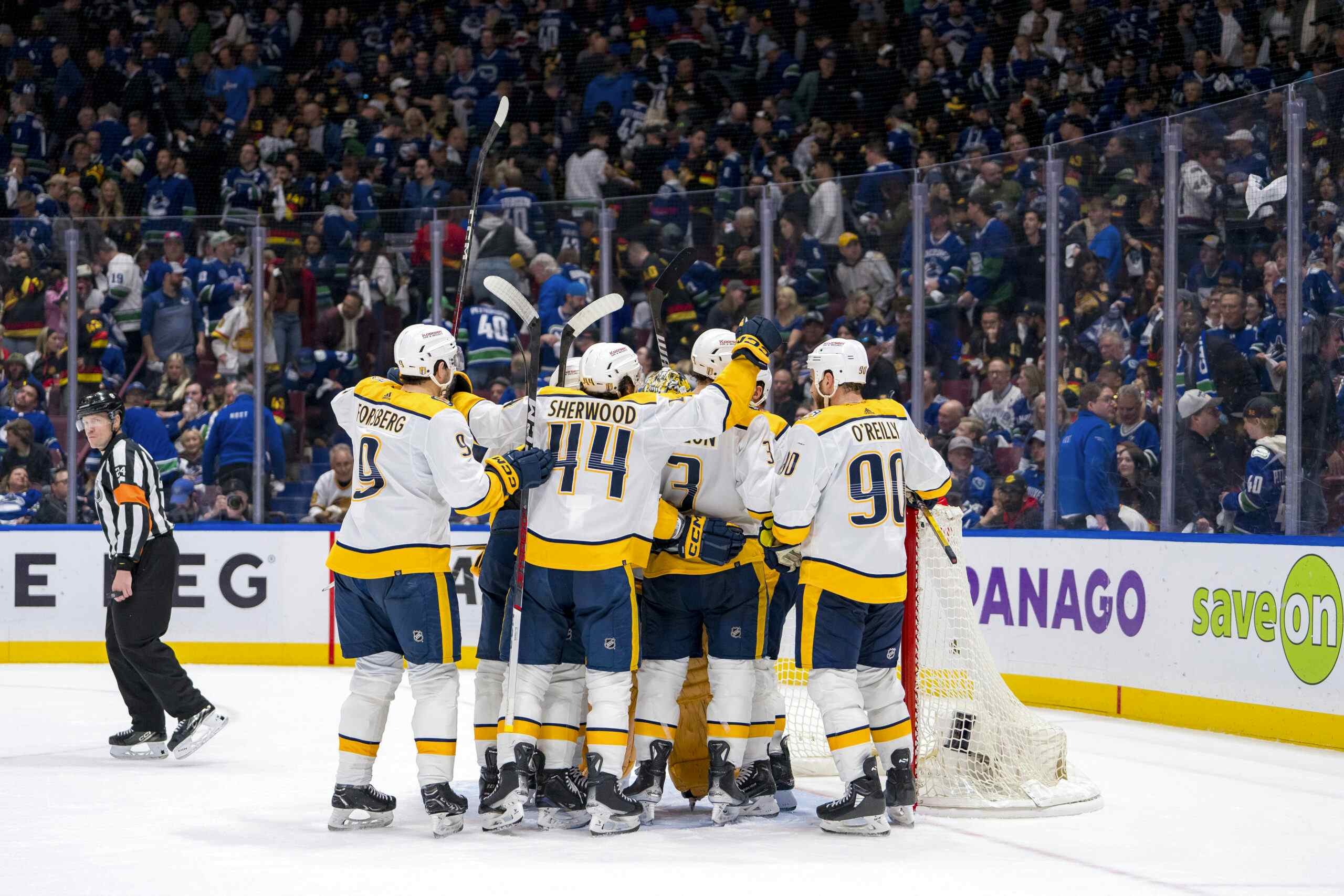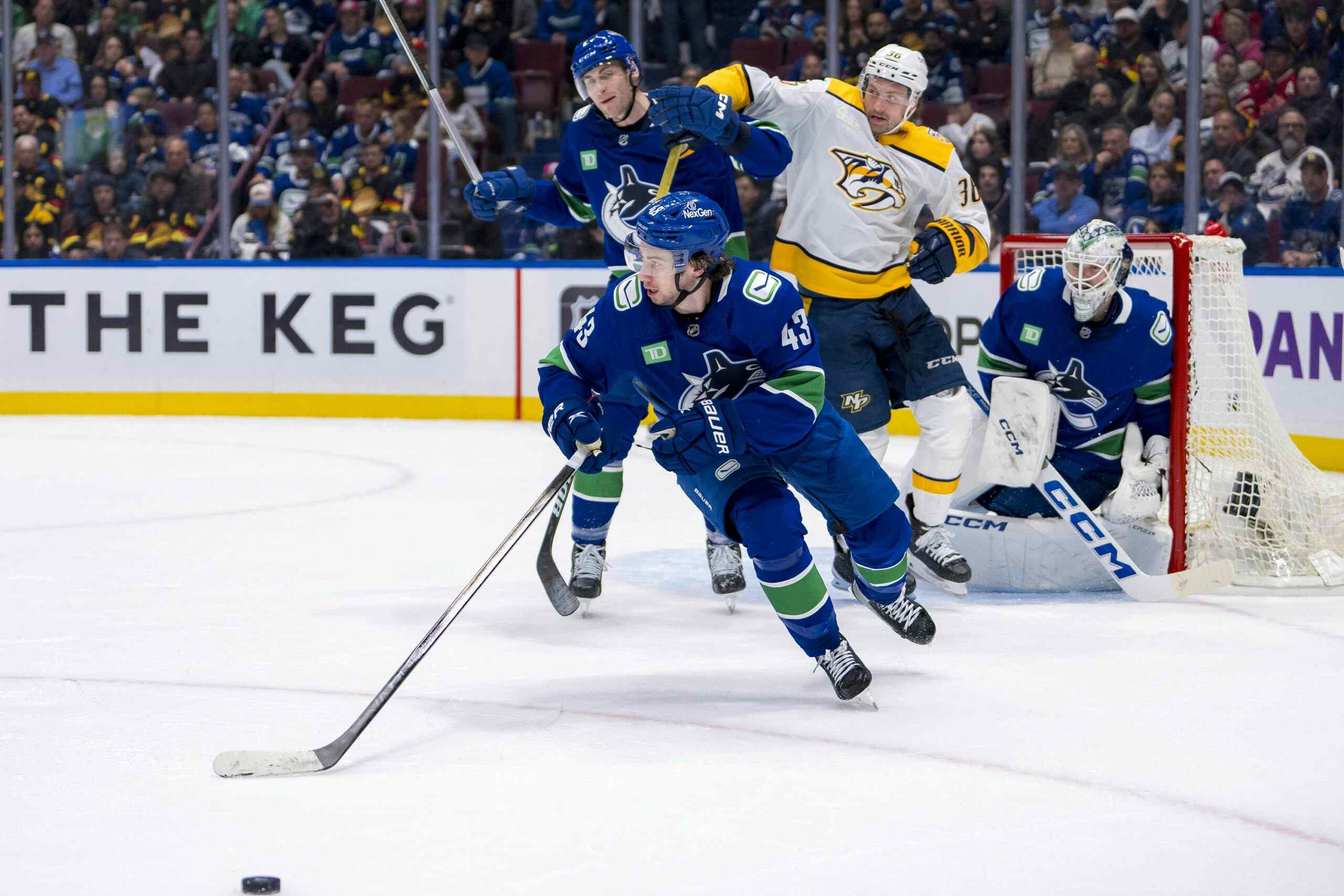Monday Mailbag: Is Elias Pettersson Meeting Expectations?

4 years ago
I think it would be a catastrophically bad idea to defer the pick to next year given the uncertainty of the Western Conference at the moment and the overall parity of the league. We’ve seen what happens when teams misjudge their window or even just hit a run of bad luck after trading away and unprotected first, and it can get ugly with the new lottery system. That’s a big part of the reason I wasn’t a huge fan of the Miller deal in the first place. The biggest saving grace was that they did get the additional year of wiggle room, so it would be foolish to throw that away.
To the best of my knowledge, deferring the pick isn’t in the cards for the Canucks anyway. Unless I’ve misunderstood them, the conditions on the pick stipulate that the pick will defer to 2021 only in the event that they miss the playoffs.
I think the most likely outcome would be that @Brock Boeser would slot back into his role on the @Elias Pettersson line, with Toffoli finally popping back down to the Horvat line as many fans have been anticipating. Then Lievo would likely rotate in and out of the press box along with Zack MacEwen and Tyler Motte.
That’s my best guess. Anything could happen. I also wouldn’t be surprised to see the top two lines remain the same, with Boeser taking Virtanen’s role on the third line and Virtanen dropping down to the fourth line. I wouldn’t even necessarily expect Josh Leivo to find his way into a healthy lineup with all the recent additions.
I’m assuming you’re talking specifically about the Pacific Division, or the teams in the playoff hunt. The Canucks don’t have an easy schedule by any means, but it’s not the most difficult, either. The Flames schedule is absolutely brutal, and with the games in hand some of the teams behind them in the standings have, I wouldn’t be surprised to see them fall out. Arizona’s in tough, too, and their hopes will likely come down to the three games they play against the Canucks between now and season’s end. If I had to guess, I would say that the Central Division will take both Wild Card spots, with Vancouver, Calgary, and Arizona battling it out for third in the Pacific. Vancouver has the best chance right now, but that could change very quickly.
@Gustav Nyquist had similar career numbers when he hit free agency last summer, and he secured a 4-year deal at $5.5 million AAV. Since Toffoli is a bit younger and more respected around the league, I can’t see him taking less than 5 years at the same price.
If I’m Toffoli’s agent, my initial ask would probably be at least 6×6, but what he ends up getting will depend on how he performs down the stretch. The AAV on Toffoli’s next contract has a floor of about 5 million dollars, but the more he produces, the more that number is going to increase.
I’m suspicious of the idea of meritocracy as a general rule. That’s not unique to sports, either. If you look around at both the public and private sector, there are plenty of examples of people in positions of power who aren’t particularly good at their jobs, but have retained long-term employment nonetheless.
That definitely applies in this situation too. The Canucks haven’t been playing all that differently through this stretch than they were when they were winning games. The big difference is just that they aren’t getting bailed out by their goaltender anymore. If anything, it’s the high-paid veterans who have blown it for the Canucks over this road trip, not the youngsters.
I’m not sure where you’ve been, but I’m pretty sure Jeff Paterson has been asking that question after every bad start since Green was hired.
That’s a tough question. I spend so much time around hardcore fans that it can be hard to gauge how casual fans feel about the team’s management. Online, it seems to be close to 50/50, but I don’t think Twitter or Facebook is at all representative of how the average person feels.
Based on what I’ve observed from the Burke, Nonis, and Gillis eras, I think Jim Benning is more likely to be remembered for acquiring some of the Canucks’ core players than for his missteps in free agency. If you look at Brian Burke and Dave Nonis, both seem to get a lot of credit for the success of the Gillis-era teams because of their role in acquiring and developing the core of those teams, despite the fact that the team’s record during their tenure was hit-and-miss. To the average fan, that’s a lot more tangible than depth signings and navigating the salary cap, even if those things are equally important.
The concern surrounding @Thatcher Demko stems mostly from the fact that Jacob Markstrom is older and that players tend to decline as they reach their early thirties. The degree to which they decline varies quite a bit– some players remain effective right up until 36 or 37, while others hit a wall shortly after 30– so it’s hard to know whether or not Markstrom can keep up his strong play throughout the next three or four years as the Canucks round the corner towards being legitimate contenders.
On the flip side, the Canucks also have Thatcher Demko, who is young, cost-controlled, and has shown flashes of brilliance despite struggling with inconsistency; and Michael DiPietro, who is still a complete wild card. The fear isn’t so much about which goalie is better as it is about timing. The disaster scenario for the Canucks would be locking Markstrom up long-term and losing Demko in the expansion draft, only to see that they retained the wrong goaltender. Given Markstrom’s age and spotty record up until last season and Demko’s room to grow, that’s a definite possibility.
At the same time, it’s also entirely possible that they could lose Demko, retain Markstrom, call up DiPietro, and be no worse for the change. As the saying goes, goalies are voodoo. Whenever you add some uncertainty into the mix, fans are bound to get a little anxious.
The idea that Elias Pettersson isn’t producing enough is completely ridiculous. He’s a top-30 player in goals and total points, and he’s on pace to exceed the offensive totals he put up in his rookie year. Last season, a number of observers pointed out that Pettersson was riding unsustainable percentages, and that he was bound to regress to some extent. That’s turned out to be true, as his shooting percentage has declined from 19.4% in 2018-19 to a more reasonable 16.6%. Yet in spite of that regression, he’s still on pace to best his rookie season in every conceivable way.
There is a very frustrating tendency in this market to diminish the achievements of known commodities and focus on the shiny new toy. Historically, goaltending has been the obvious example to point to, but it’s happened at forward multiple times this year, too. The inevitable regression Brock Boeser has experienced that data-focused analysts predicted three years ago has finally come to pass, and as a result, some fans are now openly wondering if he’s a redundancy in a lineup that boasts Tyler Toffoli and Jake Virtanen at right wing. By the same token, there’s been a lot of emphasis placed on how J.T. Miller has made Elias Pettersson better this season, and virtually none on how playing with Pettersson has transformed Miller from a player who had averaged 45-55 points a season to one who is going to exceed 70 points this year.
I don’t think there is any way you can claim that Elias Pettersson hasn’t met expectations this season at the very least and expect to be taken seriously. With all due respect to J.T. Miller’s astounding campaign, Pettersson is still the team’s best forward, and is likely to be for as long as he wears a Canucks uniform.

